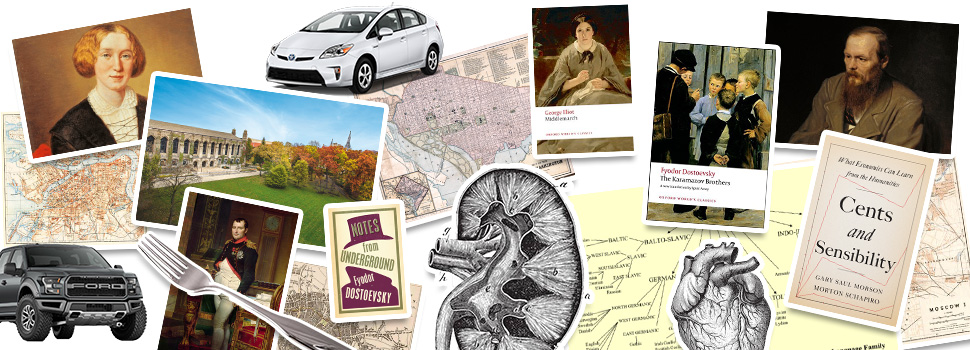What did the economist say to the humanist?
Find out in “Economics and the Humanities: Understanding Choice in the Past, Present and Future.” The winter 2019 course is the latest chapter in an ongoing dialogue between professors Gary Saul Morson, a literary scholar, and Northwestern President Morton Schapiro, a labor economist.
At its core, the class illustrates how disparate disciplines can learn from one another not in spite of but, rather, because of their different world views. Students learn to examine questions from opposing perspectives in order to challenge basic assumptions.
- Related: Course descriptions and application instructions on CAESAR
In one session, students consider a market for the sale of human organs. What argument would an economist make in favor? Think supply, demand and avoiding needless deaths from long waiting lists. But how would the counterargument go? A humanist might raise questions about the ethics in poor people selling kidneys to rich people.
They wrote the book
In their 2017 book, Cents and Sensibility: What Economics Can Learn from the Humanities, the co-teachers and co-authors make a case for a more humanistic approach to economics.
“Culture, stories and ethics are things that can’t be reduced to equations, and economics accordingly has difficulty with them,” writes John Lanchester in a New Yorker article from July 23, 2018. “Morson and Schapiro’s solution is to use the study of the humanities, and particularly of realist fiction, to broaden perspectives and to reintroduce to economics those three missing factors.”
The study of literature, they argue, offers economists ways to make better models, predictions and policies.
Talk about choice
To focus their dialogue of disciplines, Morson and Schapiro spotlight the concept of choice. People make choices every day, but even unconscious processes, like evolution, face branching possibilities and alternatives.
Economics considers how choices are and should be made. Literature, on the other hand, describes in rich tones how a character makes — and lives with — their choices.
Those perspectives are evaluated through readings and discussions of history, urban planning, theology and more.
Many questions, many answers
At any given moment, how many alternatives are possible? Is there really such a thing as chance or choice? How does one select a college, a car or a life partner?
Morson and Schapiro offer alternative approaches to these kinds of questions based on the presuppositions of their respective fields of expertise. The class is structured as a debate with no single right answer to each question.
Next steps
“Economics and the Humanities: Understanding Choice in the Past, Present and Future” is cross-listed as Humanities 260 and Slavic 396.
Course enrollment is filling quickly, so check it out now. Detailed instructions are in the course descriptions on CAESAR.


